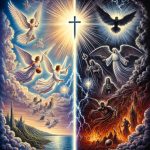Corresponds with Sabbath School Study Guide: Oct 2-8
Background Considerations:
The event of his chapter is dated in the second year of King Nebuchadnezzar, or 602 BC. Historians refer to this king in the first half of his reign as “Nebuchadnezzar the Destroyer”, because in that phase of his reign he was involved in extensive military campaigns especially to the west. For the majority of the emperor’s subjects this meant heavy taxation, which lead to rebellions and more oppression. Babylonian official records talk about attempts to overthrow Nebuchadnezzar staged even by his trusted servicemen.
The young king must have been very much satisfied by his achievements. He was the ruler of the empire of the day and in control of the lives of so many people. Yet, like other dictators, he came to realize that there was one thing he could not control, and that was the future. The story tells how one night, the king was particularly concerned over “the things to come, and the revealer of mysteries showed you what is going to happen” (verse 29). So the king had a dream in which he saw a statue, that was very imposing and composed of different materials. A stone, suddenly struck it, broke it into pieces and that was the end of it. This tragic end left a negative impression on him, so the next morning he desperately searched for a reliable explanation of his dream.
Most of this chapter in the original is in Aramaic (2:4b-49), the language of international business and diplomacy during the Babylonian empire. Two different literary types (genres) dominate the chapter: story, that opens and closes the chapter, and also a prophetic interpretation of the dream that occupies much of its middle part. A chiastic-concentric plan of the chapter may be proposed as follows:
A. King’s anger (2:1-13)
B. Daniel’s request (2:14-23)
B’. Daniel’s speech (2:24-45): the longest part
A’. King’s gratitude (2:46-49)
A point that is crucial for a correct understanding of the story is the question of whether Nebuchadnezzar forgot his dream. Some people think that he did and that is why he asked his wise men to tell him both the dream and its meaning. Some older translations of the Bible, like the KJV, are used to support this view, because in verses 5 and 8 they quote the king as saying “the thing is gone from me.” But the discovery of certain ancient Aramaic texts has given a more correct meaning of the Aramaic word ‘azda’ as something that “is fixed or decided”, hence the NIV translates the whole phrase as “this is what I have firmly decided.” By this the king meant that he was determined not to change his mind on the matter. Why then, did he ask the wise men to tell him the dream? Most likely because he wanted to test them to make sure that their interpretation of it was correct. If he told them the dream, they could have invented any explanation they wanted. But their ability to tell both the dream and its interpretation would be the best proof that their interpretation was correct. Says a well-known commentary on Daniel: “That he demands his soothsayers to tell him the dream itself should not be taken to mean that had forgotten it; rather, he use this as a test in order to have assurance that they can give him a reliable interpretation of it (vs. 9).” (Daniel. The Anchor Bible, 144).
Relevant Biblical Passages
-
- Daniel 2:7-13. As the story progresses, the misunderstanding between the king and his wise men becomes more and more obvious. Why did he accuse them of things like attempts “to buy time,” conspiracy to tell “misleading and wicked things,” and hope that “the situation will change”? Could it be that he was afraid of a coup and of their possible involvement in it? Were the wise men right when they said that no human could solve the king’s problem, but only the gods could?What do you make of this harsh verdict against all of Babylon’s wise men?
-
- Daniel 2:14-23. In the face of this tragedy, Daniel is calm but he reacts right away. He speaks to Arioch “with wisdom and tact,” then he goes straight to the palace and asks the king for more time. Why did the king grant this request when he was not willing to do the same for the Chaldeans?What can we learn from this chapter about Daniel’s prayer life? The hymn
of praise found in verses 20-23 is the first one recorded in the book, it was composed by Daniel himself and its words focus on God. In the rest of the book we have a few more hymns of praise to God that were composed by pagan rulers and they are the echoes of Daniel’s. How does Daniel’s hymn describe God? Is there any significance in the shift in referring to God as “He” (verse 21) and “you” (verse 23)? How about another shift, this one from “my” and “me” to “we” and “us” found in verse 23?
- Daniel 2:14-23. In the face of this tragedy, Daniel is calm but he reacts right away. He speaks to Arioch “with wisdom and tact,” then he goes straight to the palace and asks the king for more time. Why did the king grant this request when he was not willing to do the same for the Chaldeans?What can we learn from this chapter about Daniel’s prayer life? The hymn
-
- Daniel 2:24-30. Daniel is now ready to be taken to the king. Once he is in the king’s presence, how does Daniel begin (and end) his speech? How does his attitude compare and contrast with Arioch’s? What can we learn from Daniel’s words found in verse 29 about the importance of the context when we interpret events or someone’s words?
- Daniel 2:36-45. In his explanation of the statue seen in the dream, Daniel focuses on the first and the last parts. Why? How is the last world kingdom different from the previous ones? What will its “mixed people” try to do and how will they go about doing it? Verse 44 is the climax of Daniel’s speech. How did it impact on King Nebuchadnezzar and his fear? In closing, Daniel refers again to his God. Do you see any significance as to why he did that?
Lessons for Life
The story from this chapter teaches that God knows, reveals and holds the future. Yet another teaching may be equally important and that is the fact that God protects his remnant when their lives are being threatened. Moreover, God cares for other people, because we see in this chapter that he cared about Babylon’s wise men and the Chaldeans. Through Daniel’s intervention he saved their lives.
The four earthly kingdoms represented by the materials of the statue have traditionally been identified as Neo-Babylon, Medo-Persia, Greece and Rome. The stone kingdom is God’s end-time intervention in our world. Since number four in the Bible stands for the totality of the earth, can we say that the succession of the earthly kingdoms represents the rises and the falls of all empires that have ever ruled over our world?





